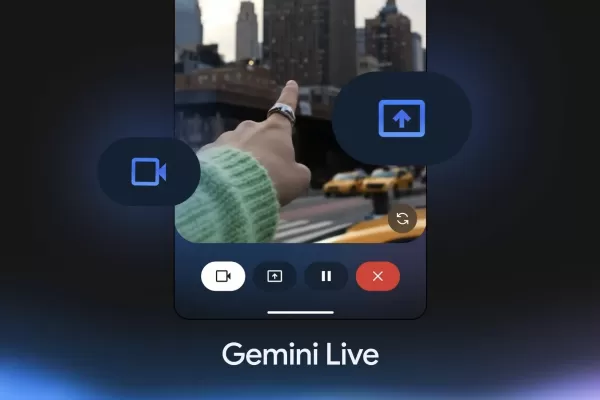AI Revolutionizes Tabletop RPGs: Ultimate Guide to Worldbuilding Automation
Explore the groundbreaking fusion of artificial intelligence and tabletop role-playing games, where cutting-edge technology meets creative storytelling. Modern AI solutions are transforming how we build immersive game worlds—streamlining the process, enhancing creativity, and enabling richer narratives. This comprehensive guide demonstrates practical applications of accessible AI tools like ChatGPT for crafting everything from sprawling political histories to memorable tavern encounters in your D&D campaigns and other tabletop adventures.
Key Benefits
AI-assisted worldbuilding dramatically reduces preparation time while increasing depth.
Easily generate fully-realized settlements with distinct cultures and histories.
Create vivid, memorable NPCs with complex personalities and motivations.
Maintain consistency across all aspects of your game world effortlessly.
Unlock new creative possibilities while retaining full artistic control.
The Rise of AI in Tabletop RPG Worldbuilding
What is AI-Powered Worldbuilding?
AI-enhanced worldbuilding represents a paradigm shift in how game masters conceptualize and develop their gaming universes. Rather than replacing human creativity, these intelligent systems serve as collaborative partners that automate tedious aspects of world creation while suggesting innovative concepts a DM might not consider alone. From generating coherent geographical features to maintaining consistent naming conventions across cultures, AI handles the heavy lifting so creators can focus on storytelling.

Contemporary AI platforms like ChatGPT excel at producing:
- Comprehensive regional descriptions with climate and wildlife details
- Multi-layered character relationships and interpersonal dynamics
- Organic-feeling adventure hooks that tie into existing campaign elements
Why Use AI for Your RPG Campaigns?
Incorporating AI into your worldbuilding workflow offers transformative advantages that benefit both novice and experienced game masters. Beyond the obvious time savings—what might take days to create manually can often be generated in minutes—these tools provide fresh creative perspectives that can elevate your storytelling. The true power emerges when AI handles repetitive tasks while you concentrate on narrative cohesion and player engagement.
Notable advantages include:
- Time Management: Regain valuable hours previously spent on manual content generation
- Creative Catalysis: Break through writer's block with unexpected yet fitting suggestions
- Scope Expansion: Effortlessly add depth to areas that might otherwise receive less attention
- Quality Assurance: Maintain tonal consistency across all world elements automatically
Category Manual Creation AI-Assisted Process Standard Town Creation 4-6 hours 30-45 minutes NPC Backstory Depth Often limited due to time Rich, multi-generational histories Cultural Cohesion Requires conscious effort Automatically maintained Creative Bottlenecks Common during long prep Continuous idea generation
Leveraging ChatGPT for Detailed Campaign Elements
Crafting Unique Taverns with AI
The humble tavern serves as the social heart of countless RPG adventures. With AI assistance, these establishments transform from generic rest stops into vibrant storytelling hubs. A well-crafted prompt can yield complete tavern concepts including:
- Architectural quirks reflecting local building traditions
- Signature dishes that showcase regional cuisine
- Innkeeper personalities that immediately suggest story possibilities
- Regular patrons whose presence explains the tavern's reputation
Example refined prompt: "Generate an upscale dwarven drinking hall built inside a hollowed-out giant mushroom, including three notable regular patrons and their relationships to each other." The AI can then provide a complete establishment complete with political undertones and potential adventure seeds.
Building Detailed Towns Using AI
Creating settlements that feel alive requires attention to interconnected systems—economy, governance, cultural practices, and geographical advantages. AI tools excel at developing these complex relationships while ensuring all elements logically support each other. A sophisticated approach involves:
- Establishing the town's primary industry and economic drivers
- Developing the social hierarchy and power structures
- Creating 2-3 current political tensions affecting daily life
- Generating notable landmarks with historical significance
This method produces towns where players immediately grasp the living ecosystem, encouraging deeper engagement and more meaningful interactions with the setting.
Step-by-Step Guide to AI-Powered Worldbuilding with ChatGPT
Optimizing Your AI Workflow
Mastering AI-assisted worldbuilding requires understanding how to structure effective prompts that yield useful results. Follow this progression for optimal output:
- Foundation Layer: Establish core parameters like genre, tone, and themes
- Structural Layer: Generate the world's fundamental systems and organizations
- Locational Layer: Populate the world with distinct regions and settlements
- Character Layer: Create NPCs with depth and purpose
- Narrative Layer: Develop plot hooks and ongoing conflicts
Each layer should reference and build upon previous outputs, creating a cohesive whole. For example, after generating a coastal trading city's economic focus (structural), you might request notable businesses (locational) whose proprietors (character) are involved in a smuggling operation (narrative).
Advanced Prompt Engineering
Progress beyond basic queries by implementing these professional techniques:
- Context Stacking: Begin each session by restating your world's core parameters
- Iterative Refinement: Use follow-up prompts to adjust and improve initial outputs
- Perspective Shifting: Request the same information from different in-world viewpoints
- Constraint Implementation Limit options to force creative solutions ("using only desert creatures")
These methods help guide the AI toward more nuanced and campaign-specific results while preventing generic fantasy tropes.
Pros and Cons of AI in Tabletop RPG Worldbuilding
Advantages
Exponential increase in content production speed without quality loss
Consistent adherence to established world rules and characteristics
Elimination of creative blind spots through unexpected yet fitting suggestions
Democratization of worldbuilding for time-constrained game masters
Enabled focus on higher-level narrative design and player experience
Considerations
Requires clear creative direction to avoid generic outputs
Necessitates content review to ensure alignment with campaign vision
Potential over-reliance if used without maintaining personal creative investment
Important ethical considerations regarding originality and disclosure
FAQ
How does AI complement rather than replace human creativity?
AI functions best as an idea generator and content accelerator, while human oversight ensures emotional resonance and narrative coherence. The most effective implementations use AI for first drafts that creators then refine and personalize.
What are best practices for ethical AI use in RPGs?
Transparent communication with players about tool usage, careful review of all generated content, and maintaining authentic creative ownership rather than presenting raw AI output as original work.
Related Questions
How can DMs maintain their unique creative voice when using AI?
By using AI strictly as a brainstorming partner and content generator, then extensively modifying and personalizing all outputs to reflect your distinctive storytelling style and campaign priorities. The technology should enhance rather than define your creative expression.
Related article
 Google Introduces Real-Time AI Camera Sharing in Search
Google Expands AI-Powered "Live" Search Capabilities Across PlatformsAt today's I/O developer conference, Google unveiled expanded access to its innovative "Live" mode feature, enabling users to explore their surroundings through AI-powered visual se
Google Introduces Real-Time AI Camera Sharing in Search
Google Expands AI-Powered "Live" Search Capabilities Across PlatformsAt today's I/O developer conference, Google unveiled expanded access to its innovative "Live" mode feature, enabling users to explore their surroundings through AI-powered visual se
 Dell Launches Nvidia Blackwell-Powered AI Acceleration Platform
Dell Unveils Next-Gen AI Servers with Blackwell GPUs at Vegas EventAt Dell Technologies World in Las Vegas, the company unveiled its latest AI server lineup featuring Nvidia's cutting-edge Blackwell Ultra GPUs, marking a significant leap in enterpris
Dell Launches Nvidia Blackwell-Powered AI Acceleration Platform
Dell Unveils Next-Gen AI Servers with Blackwell GPUs at Vegas EventAt Dell Technologies World in Las Vegas, the company unveiled its latest AI server lineup featuring Nvidia's cutting-edge Blackwell Ultra GPUs, marking a significant leap in enterpris
 Cognition Acquires Windsurf, Maker of AI Coding Agent Devin
Cognition Acquires AI Coding Startup Windsurf Amid Industry Frenzy
Cognition, the AI startup responsible for the revolutionary coding assistant Devin, revealed plans to acquire Windsurf through a blog announcement on Monday. This strategic move come
Comments (0)
0/200
Cognition Acquires Windsurf, Maker of AI Coding Agent Devin
Cognition Acquires AI Coding Startup Windsurf Amid Industry Frenzy
Cognition, the AI startup responsible for the revolutionary coding assistant Devin, revealed plans to acquire Windsurf through a blog announcement on Monday. This strategic move come
Comments (0)
0/200
Explore the groundbreaking fusion of artificial intelligence and tabletop role-playing games, where cutting-edge technology meets creative storytelling. Modern AI solutions are transforming how we build immersive game worlds—streamlining the process, enhancing creativity, and enabling richer narratives. This comprehensive guide demonstrates practical applications of accessible AI tools like ChatGPT for crafting everything from sprawling political histories to memorable tavern encounters in your D&D campaigns and other tabletop adventures.
Key Benefits
AI-assisted worldbuilding dramatically reduces preparation time while increasing depth.
Easily generate fully-realized settlements with distinct cultures and histories.
Create vivid, memorable NPCs with complex personalities and motivations.
Maintain consistency across all aspects of your game world effortlessly.
Unlock new creative possibilities while retaining full artistic control.
The Rise of AI in Tabletop RPG Worldbuilding
What is AI-Powered Worldbuilding?
AI-enhanced worldbuilding represents a paradigm shift in how game masters conceptualize and develop their gaming universes. Rather than replacing human creativity, these intelligent systems serve as collaborative partners that automate tedious aspects of world creation while suggesting innovative concepts a DM might not consider alone. From generating coherent geographical features to maintaining consistent naming conventions across cultures, AI handles the heavy lifting so creators can focus on storytelling.

Contemporary AI platforms like ChatGPT excel at producing:
- Comprehensive regional descriptions with climate and wildlife details
- Multi-layered character relationships and interpersonal dynamics
- Organic-feeling adventure hooks that tie into existing campaign elements
Why Use AI for Your RPG Campaigns?
Incorporating AI into your worldbuilding workflow offers transformative advantages that benefit both novice and experienced game masters. Beyond the obvious time savings—what might take days to create manually can often be generated in minutes—these tools provide fresh creative perspectives that can elevate your storytelling. The true power emerges when AI handles repetitive tasks while you concentrate on narrative cohesion and player engagement.
Notable advantages include:
- Time Management: Regain valuable hours previously spent on manual content generation
- Creative Catalysis: Break through writer's block with unexpected yet fitting suggestions
- Scope Expansion: Effortlessly add depth to areas that might otherwise receive less attention
- Quality Assurance: Maintain tonal consistency across all world elements automatically
| Category | Manual Creation | AI-Assisted Process |
|---|---|---|
| Standard Town Creation | 4-6 hours | 30-45 minutes |
| NPC Backstory Depth | Often limited due to time | Rich, multi-generational histories |
| Cultural Cohesion | Requires conscious effort | Automatically maintained |
| Creative Bottlenecks | Common during long prep | Continuous idea generation |
Leveraging ChatGPT for Detailed Campaign Elements
Crafting Unique Taverns with AI
The humble tavern serves as the social heart of countless RPG adventures. With AI assistance, these establishments transform from generic rest stops into vibrant storytelling hubs. A well-crafted prompt can yield complete tavern concepts including:
- Architectural quirks reflecting local building traditions
- Signature dishes that showcase regional cuisine
- Innkeeper personalities that immediately suggest story possibilities
- Regular patrons whose presence explains the tavern's reputation
Example refined prompt: "Generate an upscale dwarven drinking hall built inside a hollowed-out giant mushroom, including three notable regular patrons and their relationships to each other." The AI can then provide a complete establishment complete with political undertones and potential adventure seeds.
Building Detailed Towns Using AI
Creating settlements that feel alive requires attention to interconnected systems—economy, governance, cultural practices, and geographical advantages. AI tools excel at developing these complex relationships while ensuring all elements logically support each other. A sophisticated approach involves:
- Establishing the town's primary industry and economic drivers
- Developing the social hierarchy and power structures
- Creating 2-3 current political tensions affecting daily life
- Generating notable landmarks with historical significance
This method produces towns where players immediately grasp the living ecosystem, encouraging deeper engagement and more meaningful interactions with the setting.
Step-by-Step Guide to AI-Powered Worldbuilding with ChatGPT
Optimizing Your AI Workflow
Mastering AI-assisted worldbuilding requires understanding how to structure effective prompts that yield useful results. Follow this progression for optimal output:
- Foundation Layer: Establish core parameters like genre, tone, and themes
- Structural Layer: Generate the world's fundamental systems and organizations
- Locational Layer: Populate the world with distinct regions and settlements
- Character Layer: Create NPCs with depth and purpose
- Narrative Layer: Develop plot hooks and ongoing conflicts
Each layer should reference and build upon previous outputs, creating a cohesive whole. For example, after generating a coastal trading city's economic focus (structural), you might request notable businesses (locational) whose proprietors (character) are involved in a smuggling operation (narrative).
Advanced Prompt Engineering
Progress beyond basic queries by implementing these professional techniques:
- Context Stacking: Begin each session by restating your world's core parameters
- Iterative Refinement: Use follow-up prompts to adjust and improve initial outputs
- Perspective Shifting: Request the same information from different in-world viewpoints
- Constraint Implementation Limit options to force creative solutions ("using only desert creatures")
These methods help guide the AI toward more nuanced and campaign-specific results while preventing generic fantasy tropes.
Pros and Cons of AI in Tabletop RPG Worldbuilding
Advantages
Exponential increase in content production speed without quality loss
Consistent adherence to established world rules and characteristics
Elimination of creative blind spots through unexpected yet fitting suggestions
Democratization of worldbuilding for time-constrained game masters
Enabled focus on higher-level narrative design and player experience
Considerations
Requires clear creative direction to avoid generic outputs
Necessitates content review to ensure alignment with campaign vision
Potential over-reliance if used without maintaining personal creative investment
Important ethical considerations regarding originality and disclosure
FAQ
How does AI complement rather than replace human creativity?
AI functions best as an idea generator and content accelerator, while human oversight ensures emotional resonance and narrative coherence. The most effective implementations use AI for first drafts that creators then refine and personalize.
What are best practices for ethical AI use in RPGs?
Transparent communication with players about tool usage, careful review of all generated content, and maintaining authentic creative ownership rather than presenting raw AI output as original work.
Related Questions
How can DMs maintain their unique creative voice when using AI?
By using AI strictly as a brainstorming partner and content generator, then extensively modifying and personalizing all outputs to reflect your distinctive storytelling style and campaign priorities. The technology should enhance rather than define your creative expression.
 Google Introduces Real-Time AI Camera Sharing in Search
Google Expands AI-Powered "Live" Search Capabilities Across PlatformsAt today's I/O developer conference, Google unveiled expanded access to its innovative "Live" mode feature, enabling users to explore their surroundings through AI-powered visual se
Google Introduces Real-Time AI Camera Sharing in Search
Google Expands AI-Powered "Live" Search Capabilities Across PlatformsAt today's I/O developer conference, Google unveiled expanded access to its innovative "Live" mode feature, enabling users to explore their surroundings through AI-powered visual se
 Cognition Acquires Windsurf, Maker of AI Coding Agent Devin
Cognition Acquires AI Coding Startup Windsurf Amid Industry Frenzy
Cognition, the AI startup responsible for the revolutionary coding assistant Devin, revealed plans to acquire Windsurf through a blog announcement on Monday. This strategic move come
Cognition Acquires Windsurf, Maker of AI Coding Agent Devin
Cognition Acquires AI Coding Startup Windsurf Amid Industry Frenzy
Cognition, the AI startup responsible for the revolutionary coding assistant Devin, revealed plans to acquire Windsurf through a blog announcement on Monday. This strategic move come





























